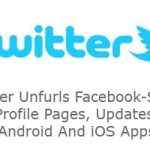
Redmond, Washington — In a fresh move to make quick bucks out of its loads of patents, Microsoft and Research In Motion today said they have signed a patent licensing agreement that gives RIM access to Microsoft’s exFAT file system technology.
Going forward, the two companies earlier this week in a press release mentioned that they have entered into a patent licensing agreement that will give RIM “broad access to the latest Extended File Allocation Table (exFAT).”
The technology dubbed as exFAT, or EXtended File Allocation Table, is an enhanced version of the FAT file system from Microsoft that uses less overhead than the Windows NTFS file system.
Microsoft claims that it optimizes files for use on flash storage, which is overwhelmingly the storage of choice on smartphones and tablets. It extends the maximum file size of 4GB in FAT32 to virtually unlimited. exFAT has been part of part of Microsoft’s embedded version of Windows, as well as of Windows client. In short, the new Blackberries will be using Flash Memory and want to use exFAT for larger file storage.
“Today’s smartphones and tablets require the capacity to display richer images and data than traditional cellular phones,” David Kaefer, the general manager of intellectual property licensing at Microsoft said in a statement. “This agreement with RIM highlights how a modern file system, such as exFAT can help directly address the specific needs of customers in the mobile industry.”

So what does this mean for RIM and Blackberry fans? To say the least, this is the most recent patent-related deal between the two companies in the past year or so. Last June, a consortium comprising Apple, EMC, Ericsson, Microsoft, Sony and RIM pooled together to purchase the patent portfolio of Nortel Networks for $4.5 billion.
Terms of the deal were not disclosed. RIM is the latest licensee of exFAT. Besides, Microsoft has signed up a number of other companies as exFAT licensees, including Sharp, Sony, Canon, Sanyo, SanDisk and Tuxera over the past few years.
Surprisingly though, the two companies are fierce competitors in the world of smartphones, where Microsoft’s Windows Phone platform goes up against RIM’s BlackBerry. In an interview with CNET in July, RIM CEO Thorsten Heins called Microsoft’s phone strategy “confusing,” but applauded the company for its experience making software.
For now, RIM has not made any mention of how it plans to use exFAT on its devices, we will just have to wait and see how RIM manages the BlackBerry 10 launch. It is already been hit with delays, and now would not see the light of day until first quarter 2013. Catching up to current file Flash Memory standards probably would not help much.


